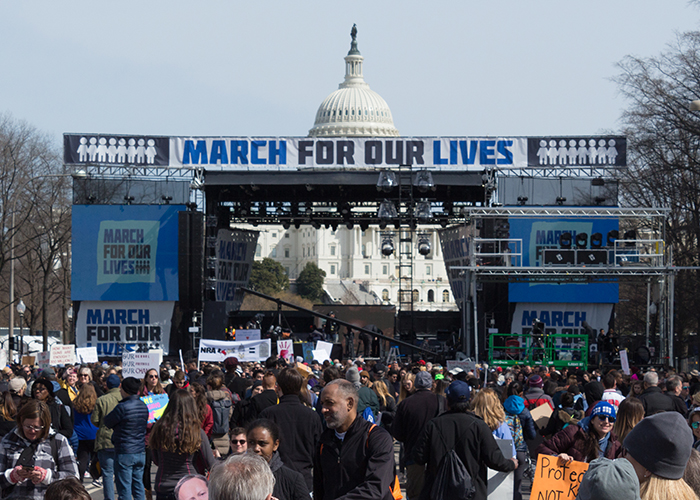One month later, on the twentieth anniversary of the shocking massacre of four students and a teacher at Westside Middle School in Jonesboro, Arkansas,[2] shooting survivors and half a million supporters gathered on Pennsylvania Avenue in Washington, DC to demand that Congress take meaningful action to end student bloodshed.
This beaver wanted nothing more than to be a part of it.
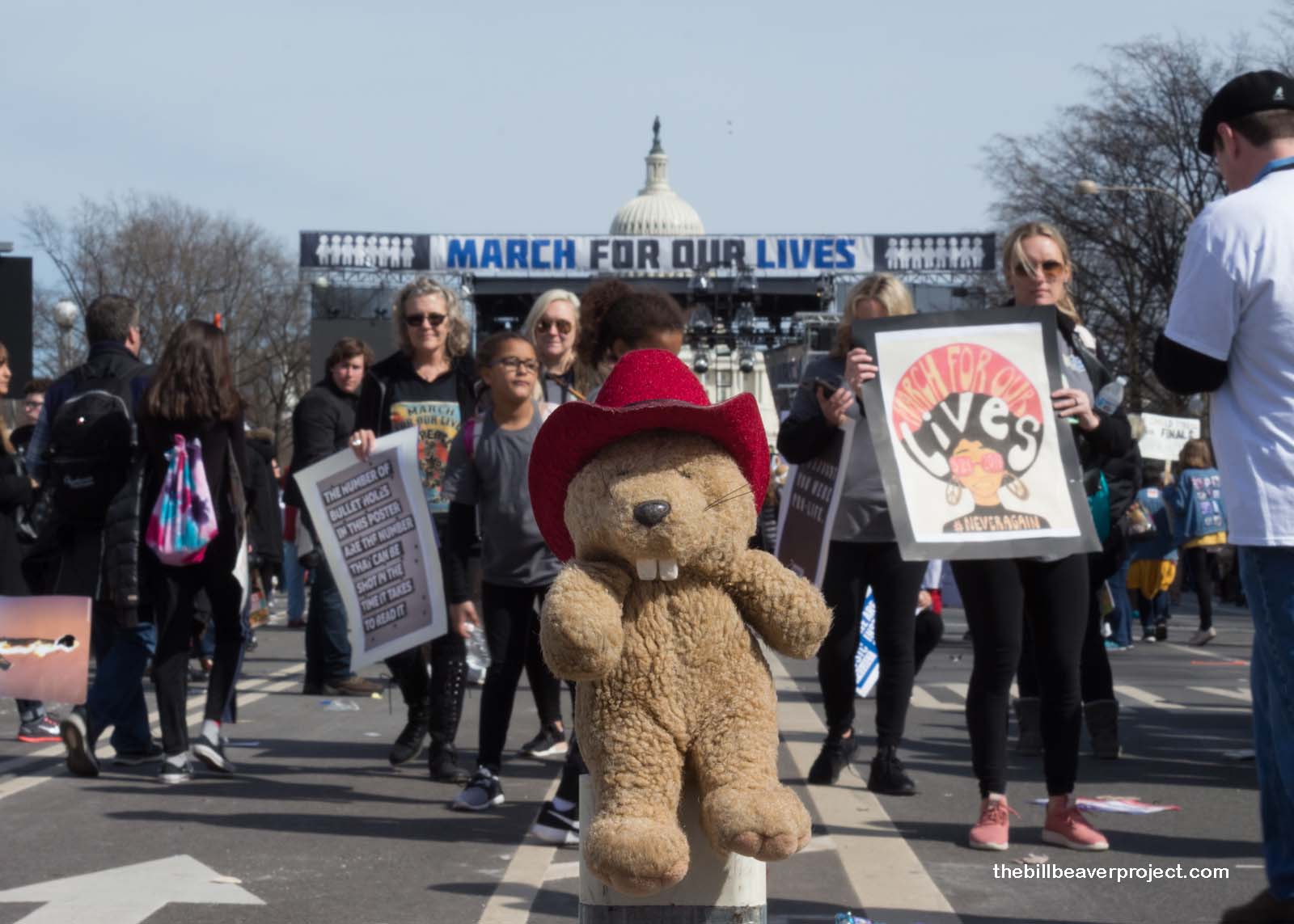 |
The demands of the marchers [3] were threefold:
1. Pass a law banning the sale of assault weapons
Even though assault rifles aren’t nearly as widely used as handguns to commit murder,[4] they were the types used in the massacres in Parkland, at the Harvest Music Festival in Las Vegas (2017), at Pulse Nightclub in Orlando (2016), at Sandy Hook Elementary School in Newtown (2012), and at several other high-profile massacres.
These weapons had been banned in 1994 under the Public Safety and Recreational Firearms Act, but the ban was allowed to expire in 2004 when studies failed to prove conclusively that the ban had reduced overall gun violence in the ten-year period.[5]
One reason was that, as assault weapon sales went down, the purchase of large-capacity magazines (LCMs), which contain more than ten rounds of ammunition, went up. The Giffords Law Center reports that between 1980 and 2008, production of semiautomatic pistols, which can attach to LCMs to shoot more rounds in a shorter time, rose from 32% of total manufacture to 76%.[6] So naturally, the next demand of March for Our Lives would be…
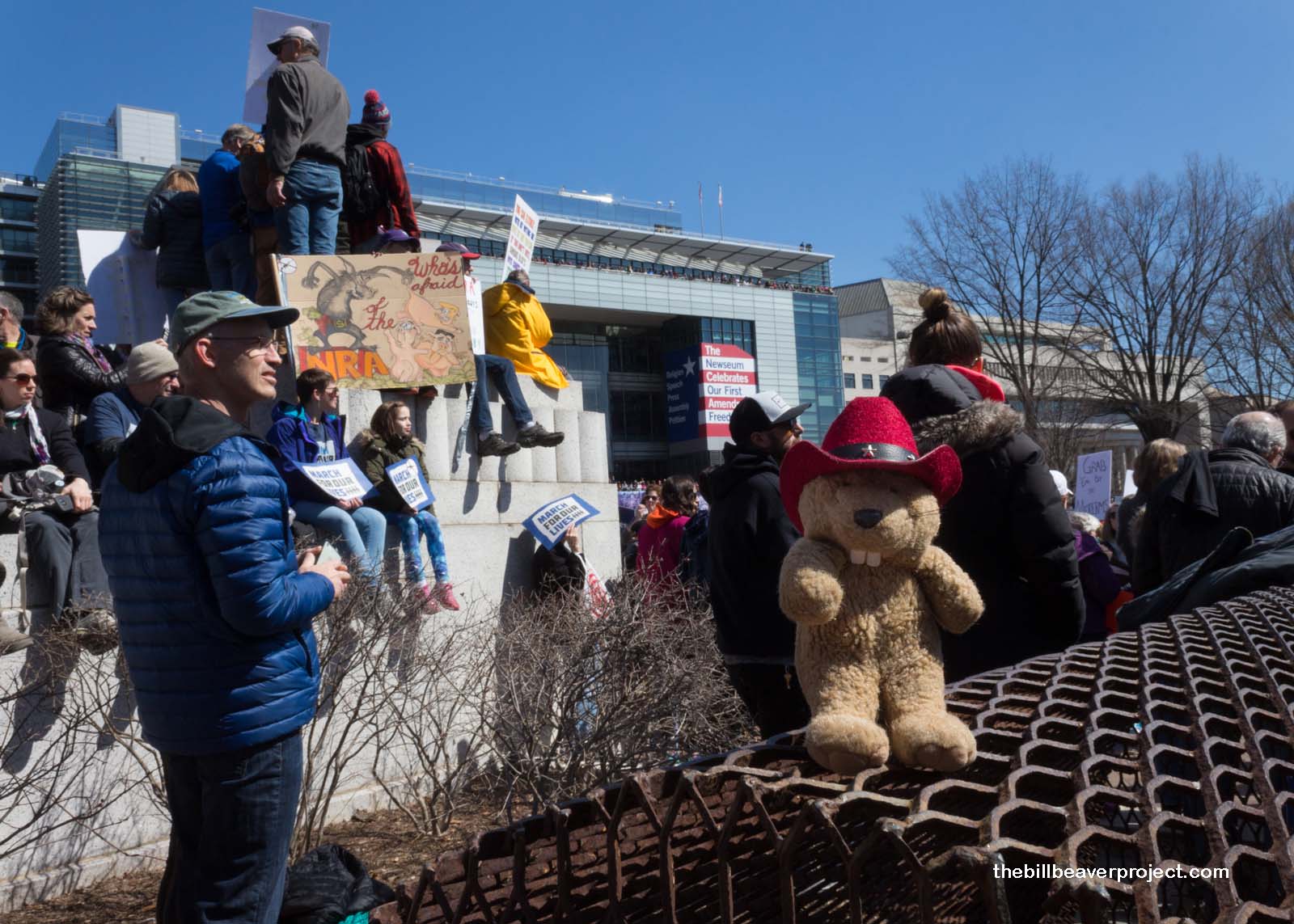 |
2. Pass a law banning the sale of LCMs
March for Our Lives cites data that the eight states with such laws[7] experience half as many mass shootings as states without.[8] The logic behind banning these kinds of magazines is that it’s easier to escape from a shooter who must stop to reload more often.
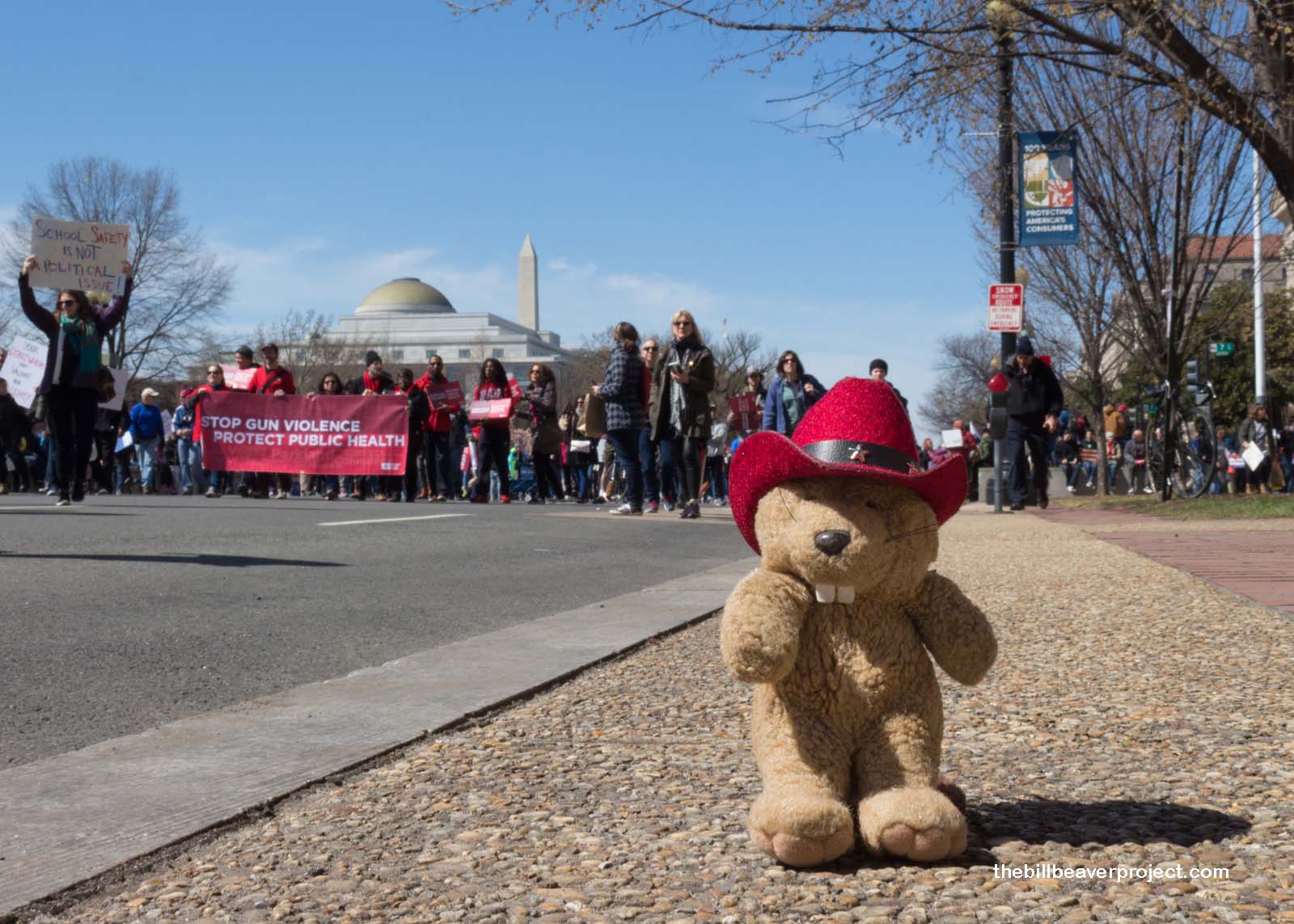 |
3. Pass a universal background check law
The third, and arguably most comprehensive, demand, is to close the private sale loophole[9] in federal background check laws. Though federally licensed firearm sellers must perform background checks on anyone who wants to buy a gun, the same laws don’t apply to private dealers, gun show exhibitors, and online vendors, whose regulations vary by state. Closing that loophole could make a big difference, but the background check standards will also have to be improved.
For instance, no federal law requires mental health history to be reported on a background check. In Florida, where you must be 21 to purchase a handgun but only 18 to buy an assault rifle, nothing popped up as Nikolas Cruz purchased his AR-15,[10] even though he had a history of mental health issues. There are no national databases for such things, and it will take great care to find a good balance between public safety and patient privacy.
Nevertheless, March for Our Lives cites the example of Connecticut, which saw a 40% reduction in gun violence after passing stricter background check and permitting laws in 1996.[11] Across the rest of the country, by comparison, there were 21 mass shootings (killing or injuring 4 or more people) in just the 38 days between Parkland and the March for Our Lives.[12] On the very day of the March itself, four people were shot at a Walmart in West Valley City, Utah.
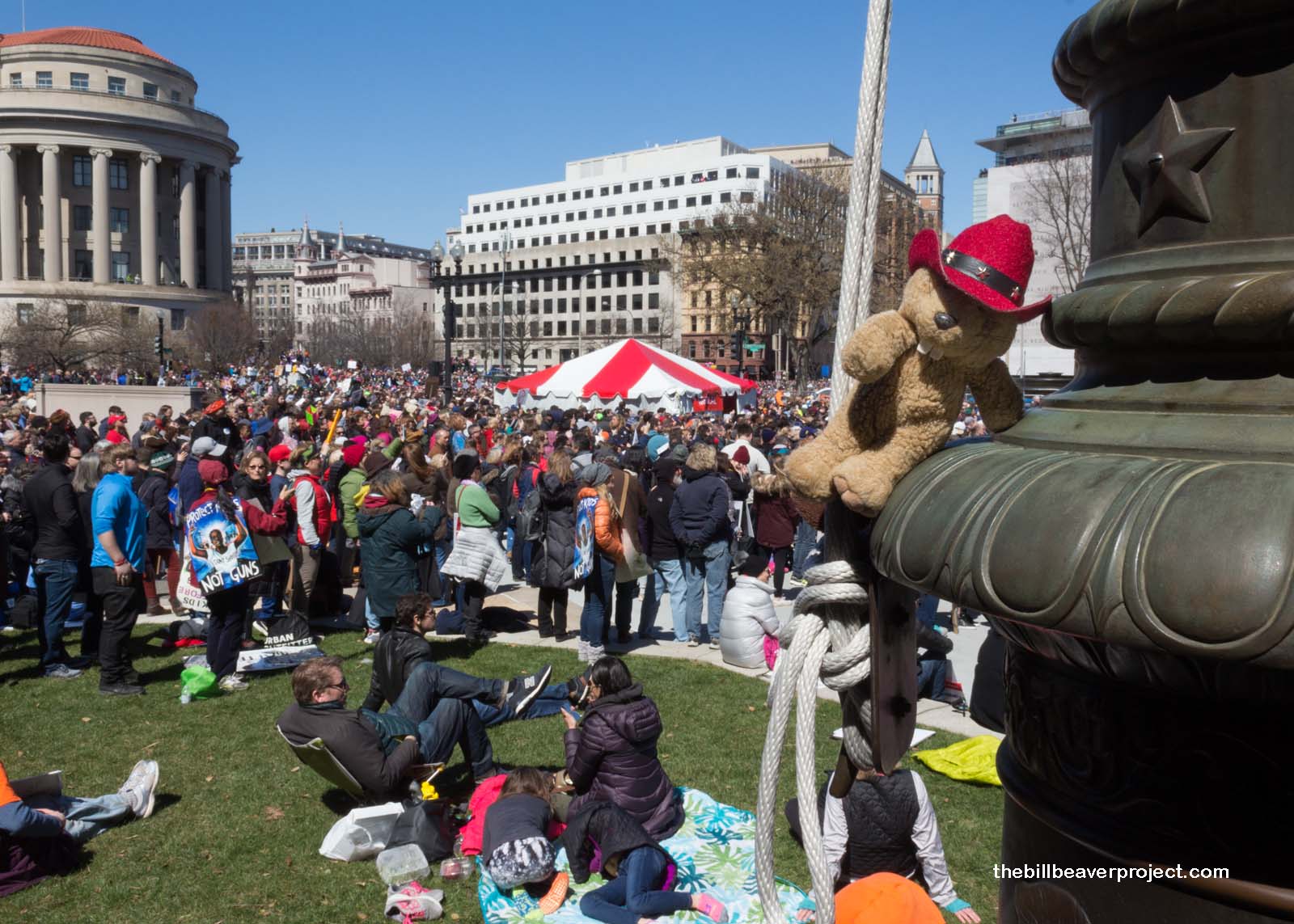 |
The most outspoken critics of the March have already argued that bans will again do nothing to reduce overall gun violence, even that any kind of gun regulations violate the Constitution’s Second Amendment. I even heard some claims that the school shootings never happened and that both the shooting survivors and all the Marchers, are paid actors by a deep state organization run by billionaire George Soros.[13] I, for one, have not seen a cent!
What I did see that day was a throng of half a million people, angry, sad, and tired that the United States averages more mass shootings per year the next ten countries on the list, combined.[14] They listened to kids from Parkland, from Sandy Hook, from troubled districts of Los Angeles and Chicago, share their stories of how gun violence robbed them of friends and family. At the end, Parkland senior, Emma González, after naming the names of everyone who would never laugh again, stopped speaking abruptly and was silent.
The effect took five million people by surprise. At first people clapped and cheered, thinking she was nervous. Then people got uncomfortable, really uncomfortable, because that silence wasn’t stopping. Groups tried to break it with clapping and cheers, but it went on, and on. Then one person decided to raise the peace sign, and it spread, until the majority of half a million people finished out the four and a half minutes of silence with their hands raised in the peace sign. A beeper went off, and Emma announced that she had been on stage for six minutes and twenty seconds, the time it took for 17 people to be completely erased. I hope those six minutes and twenty seconds are written into the history books.
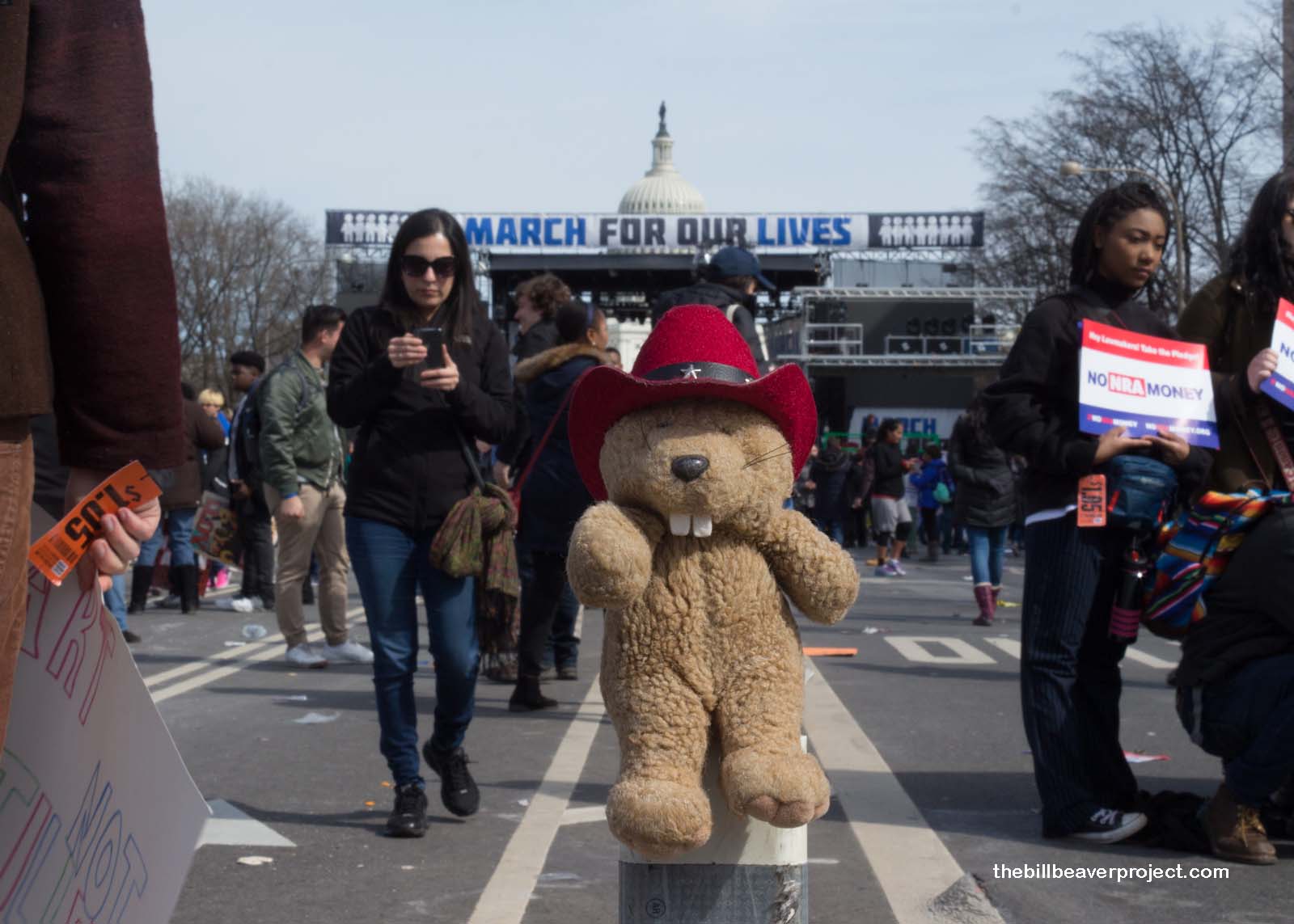 |
At 3:00 PM, the March concluded, and people began to stream out. Many would see this as their contribution to the movement, but beyond the main stage where the likes of Miley Cyrus, Ariana Grande, and Lin Manuel Miranda performed between speakers, the Capitol dome loomed up. This November, many senators and representatives run the risk of being replaced. I had to wonder, will these half a million people voice their frustration with their votes? Will Congress respond to their demands with legislation? How many more lives will be lost before a decision is made?
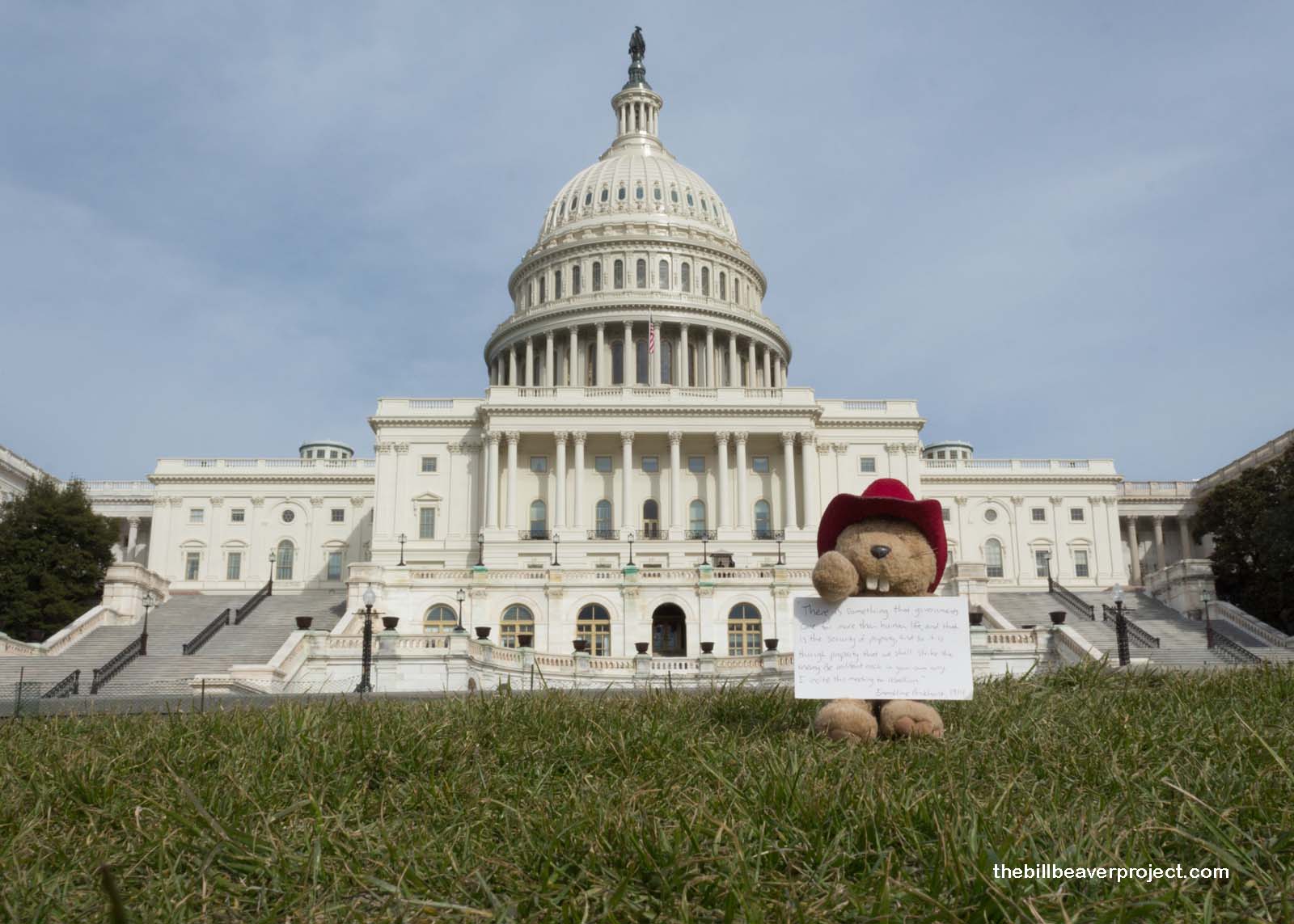 |
As I stood before the Capitol after the March, I was reminded of the words of Emmeline Pankhurst, a suffragette whose worked paved the way for women to get the vote in England one hundred years ago. They had been written on the wall of Belmont-Paul Women’s Equality National Monument just up the street:
There is something that governments care for far more than human life, and that is the security of property, and so it is through property that we shall strike the enemy. Be militant each in your own way. I incite this meeting to rebellion.

